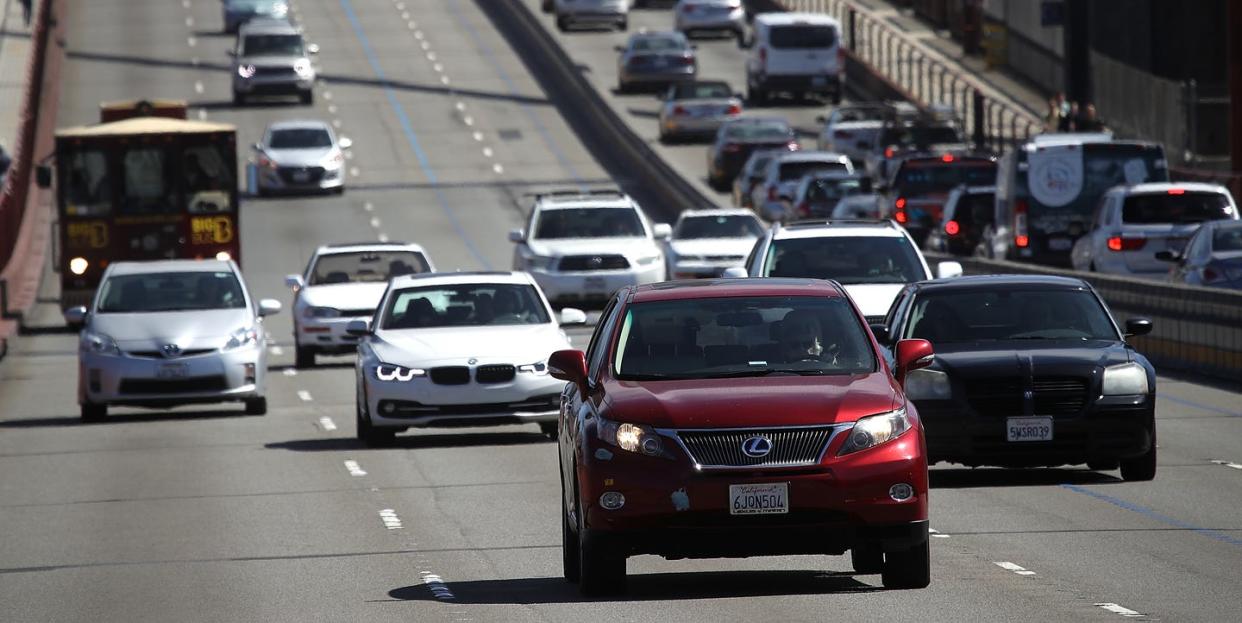White House Drops Talks with California, Aims to Finalize Looser Fuel-Economy Rules This Year

A legal fight between the federal government and the state of California is all but certain as new fuel-economy rules become final this year.
A joint statement from the White House and two government agencies indicates the feds are no longer interested in working with California and other states that follow stricter emissions regulations.
Automakers may have to sell cars for the 2021 through 2026 model years that comply with two sets of regulations, as they did before the Obama-era rules set in 2012.
The Environmental Protection Agency will loosen fuel-economy requirements for upcoming new cars by the end of this year as the White House signaled a breakdown in negotiations with the state of California.
That means automakers may be forced to comply with dueling emissions standards-one set by the federal government, and a stricter set enforced by the California Air Resources Board (CARB) and 12 other states that follow its zero-emission mandates-for cars certified for the 2021 through 2026 model years.
Predictably, the White House statement claimed to be making the move in the best interest of the public. "Despite the Administration's best efforts to reach a common-sense solution, it is time to acknowledge that CARB has failed to put forward a productive alternative since the [ruling] was proposed," the White House said in a statement. "Accordingly, the Administration is moving forward to finalize a rule later this year with the goal of promoting safer, cleaner, and more affordable vehicles."
President Trump reopened a midterm review of the emissions standards in March 2017 after the Obama administration accelerated the rulemaking process to finalize tougher EPA standards before Trump took office. Instead of dramatically raising Corporate Average Fuel Economy (CAFE) targets (which are set by NHTSA) and cutting greenhouse-gas emissions (which are set by the EPA), the new rule would freeze them at the current 2020-model-year level. Since October, CARB has publicly refused to compromise on any agreement that did not revert back to the 2012 EPA ruling that California accepted as a single, nationwide standard. CARB did not release a statement at press time on Thursday.
The Golden State and its dozen zero-emission follower states, which CARB says represent about 35 percent of the national auto market, are uniformly opposed to the new EPA proposal and claim it "weakens public-health protections" and increases greenhouse-gas emissions that otherwise would have been reduced. The EPA acknowledged that its revised proposal would result in a 5 percent increase in CO2 emissions through 2026 and a 9 percent increase in CO2 emissions through 2035, but just a 1 percent increase in smog-forming emissions during the same time period.
While California has an EPA waiver to enforce stricter vehicle emissions standards than the federal government-a power granted by every administration since the 1970 Clean Air Act-it can be legally revoked. The Trump administration has stated it will do exactly that in order to set one national standard. For now, nothing is final, but you can bet lawyers on both sides are busy firing at each other.
('You Might Also Like',)

